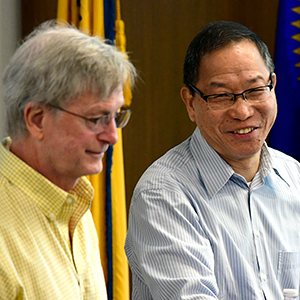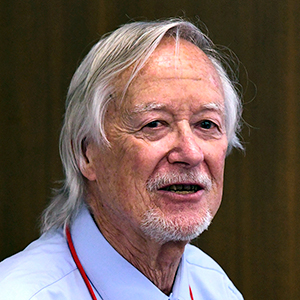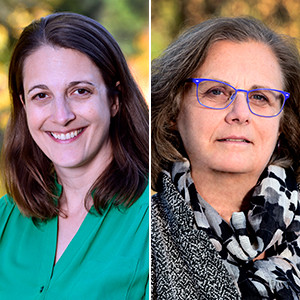Women diagnosed and treated for breast cancer have increased biological aging compared to women who remain free of breast cancer, according to a new study by NIEHS researchers and their collaborators. Among women diagnosed with breast cancer, the association with faster biological aging was most pronounced for those who received radiation therapy, while surgery showed no association with biological aging. This finding suggests that developing cancer is not what increases the aging effect.

“Of the three treatment classes we looked at, radiation therapy had the strongest associations with the biologic age measures assessed in the study,” noted Jack Taylor, M.D., Ph.D., the senior author on the paper who is an emeritus scientist at NIEHS. “The increases can be detected years after treatment.”
Accelerating the rate of aging
Biological age reflects a person’s cell and tissue health, and it differs from chronological age. To measure biological age, the researchers studied 417 women who had blood samples collected at two time points about eight years apart. About half of the women studied were selected because they had developed breast cancer during that time span. The participants are enrolled in the Sister Study, a research effort that seeks to identify environmental risk factors for breast cancer risk and other health conditions, led by NIEHS.
The researchers used three different established “methylation clocks” to determine whether there were changes in a women’s biological age between the two time points. The clocks measure naturally occurring, chemical modifications to a person’s DNA, known as methylation changes. Small variations in methylation patterns can help determine a person’s risk of developing an age-related disease.
Women diagnosed with breast cancer had faster aging rates by all three clocks, with no significant racial differences, when compared to women who did not develop breast cancer.
Does treatment play a role?
Next, the scientists examined whether biological age was associated with specific treatment regimens, such as surgery, chemotherapy, radiation therapy, and endocrine therapy. Among women with breast cancer, aging rates varied by treatment type.
“Radiation is a valuable treatment option for breast cancer, and we don’t yet know why it was most strongly associated with biological age,” noted Dale Sandler, Ph.D., chief of the NIEHS Epidemiology Branch and a co-author on the paper. “This finding supports efforts to minimize radiation exposures when possible and to find ways to mitigate adverse health effects among the approximately 4 million breast cancer survivors living in the United States.”
The scientists emphasized that women should not abandon radiation therapy as an option based on this research. Current breast cancer treatments that include radiation are very effective in preventing breast cancer from spreading.
“Women faced with a breast cancer diagnosis should discuss all possible treatment options with their doctors to determine the best course of treatment for them,” said Katie O’Brien, Ph.D., a scientist in the NIEHS Epidemiology Branch and a co-author on the paper.
The lead author, Jacob Kresovich, Ph.D., is currently a researcher in the Cancer Epidemiology Program at the Moffit Cancer Center. He began this work while a postdoctoral researcher in Taylor’s research group in the intramural research program at NIEHS.
(Robin Mackar is a writer and media relations coordinator in the NIEHS Office of Communications and Public Liaison.)









